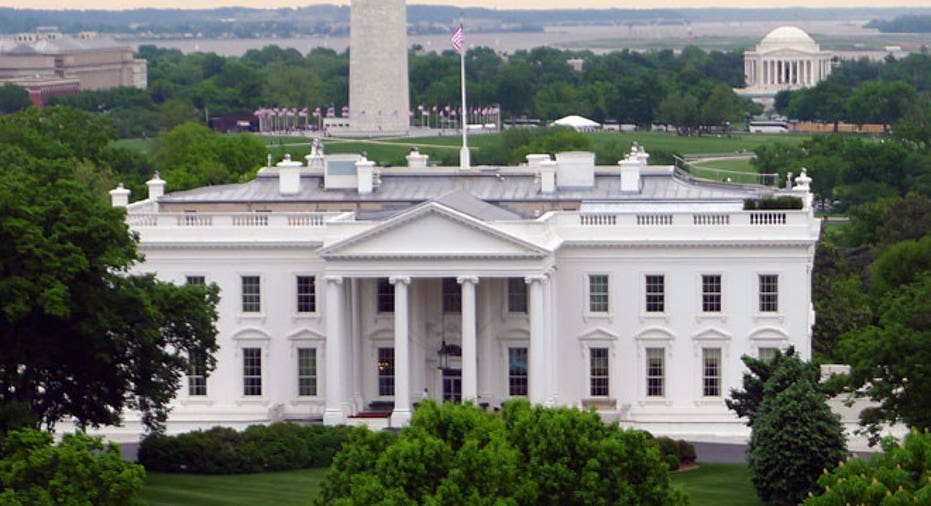Small Business Doesn't Want a One-Night-Stand President

For Rose Corona, owner of Big Horse Feed and Mercantile, the current race to the White House feels a bit like speed dating. And, she's not looking for just a one-night stand.
"The American public is looking to learn more about all of the candidates," Corona said. "You wouldn't marry someone after a week, a month or even six months. We are forced into this 24-hour media cycle of sound bites, and are tired of giving someone just one minute to say something."
Corona's family-owned farm has been in operation for 80 years, and its accompanying store opened 13 years ago. Pre-recession, she had 34 employees and was considering offering health-care benefits. Today she has 23 workers and can't afford to offer insurance.
One thing is for sure, Corona said: the best candidate for small business isn't our current president.
"All of the [Republican] candidates have something to offer," she said. "It's kind of like a bloodbath right now. It would be great to combine a lot of the aspects of all of these candidates."
Super Tuesday will bring the Republican Party one step closer to naming its candidate for 2012; however, much remains to be seen in the months leading up to the election about which candidate is best for small business.
Jean Card, vice president of media and communications for the National Federation of Independent Business (NFIB), said so far in this race small business has been a missed opportunity for both parties.
"From a small business perspective, it’s a bit like watching a lot of people talk about making bread and not mentioning flour," Card said. "Where is small business in the conversation? It’s a huge disconnect, and I don't have the answer as to why this isn't happening."
Business owners face so much uncertainty at this point in time, Card said, that having a candidate speak to issues like health-care reform and tax policy in a way that makes sense to the small business community would be a huge positive. He said most politicians haven't even acknowledged, for example, that many small business owners pay the individual tax rate, which impacts job creation. The NFIB does not endorse presidential candidates.
"In fact, [Obama's] corporate tax proposal might increase individual rates," Card said. "For candidates to just say they know businesses pay the individual tax rate—that would perk up our ears."
Entrepreneur Jason Pammer, co-founder of Mobile Web America, said he is pulling for Ron Paul, due to his hands-off approach to government.
"We had a very difficult time starting our business [in 2008]," he said. "There were a lot of barriers to entry from the government's perspective. It's hard to wrap your head around the cost of business, for someone just starting on your own with not much money."
Paul wants to remove some of these fees and also make it easier to startup in America, Pammer said. Mobile Web America has back-end operations out of the country, and Pammer said he found the process was easier to get started in China and Switzerland than in the U.S.
American productivity is the main issue for business owner Dan Focht, president and CEO of Bioptechs in Butler, Pa. The 20-year-old company has 10 employees, and Focht said that while he is voting Republican, he isn't naming names just yet.
The decline in U.S. industries—farming, mining and manufacturing— is extremely troubling to Focht. He said he would like to see a candidate face this head-on.
"Without these core industries, we do not have the muscle or horsepower to pay our debt," he said. "I would love to hear a candidate say that they would change the paradigm in D.C. to support American productivity. It's a fact of life, for America to be successful, American business has to be successful."
Chief Economist for the Small Business & Entrepreneurship Council Ray Keating said members are looking for a big shift in economic policy and growth. The SBE Council does not endorse candidates for presidential election, but Keating said its membership has had many issues with President Obama during his term.
"In the election, it's interesting to see how rhetoric changes," Keating said. "Everyone is 'for' small businesses and they all say, 'I love small business.'"
Obama's policies toward upper-income earners and the energy and financial communities have hurt his standing among small business owners, he said, because many of them are also members of these same communities.
Mitt Romney looks to be the clear front-runner for the Republican Party, Keating said. If Obama wins, Keating said business owners will know what they are in store for over the next four years. However, if Romney were to clinch the nomination and win the presidency, there are still a lot of unanswered questions, especially regarding health-care reform.
"Small business owners have to look at the whole package," he said. "What he is promising on the campaign trail and what he has done in the past as Massachusetts governor. There are clear discrepancies, and ObamaCare is an offshoot of RomneyCare."
Regarding health care, Card said business owners would like to see a nominee discuss what the landscape would be post-ObamaCare, if it were to be repealed.
"It's a mystery [for a candidate] to say they can 'repeal' ObamaCare, it's such a talking point. Especially when it's not something a president can actually do," she said. "It would be interesting to see a candidate talk about post-repeal, what can be done to help small business, like lowering the cost of insurance."



















